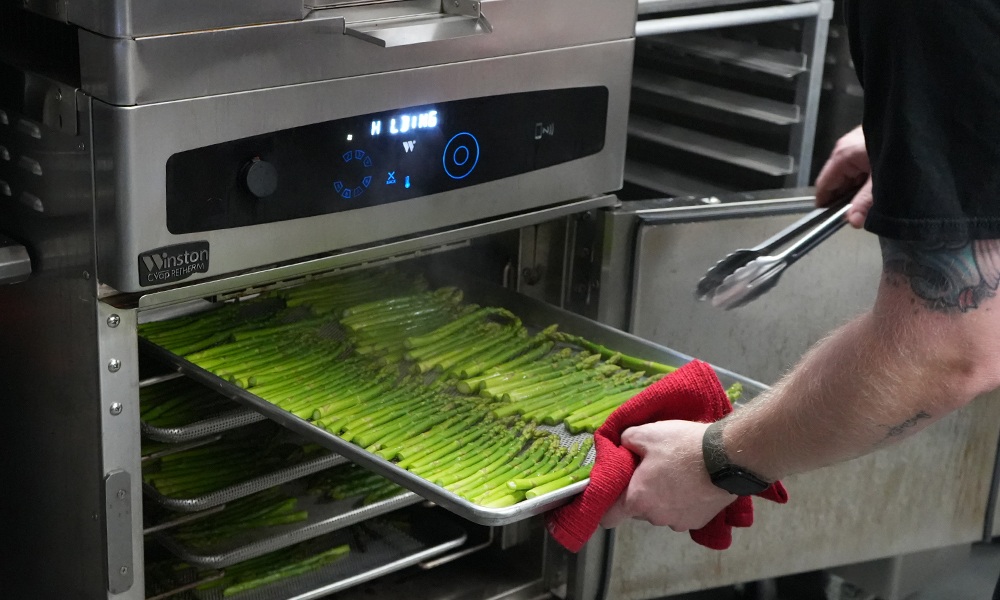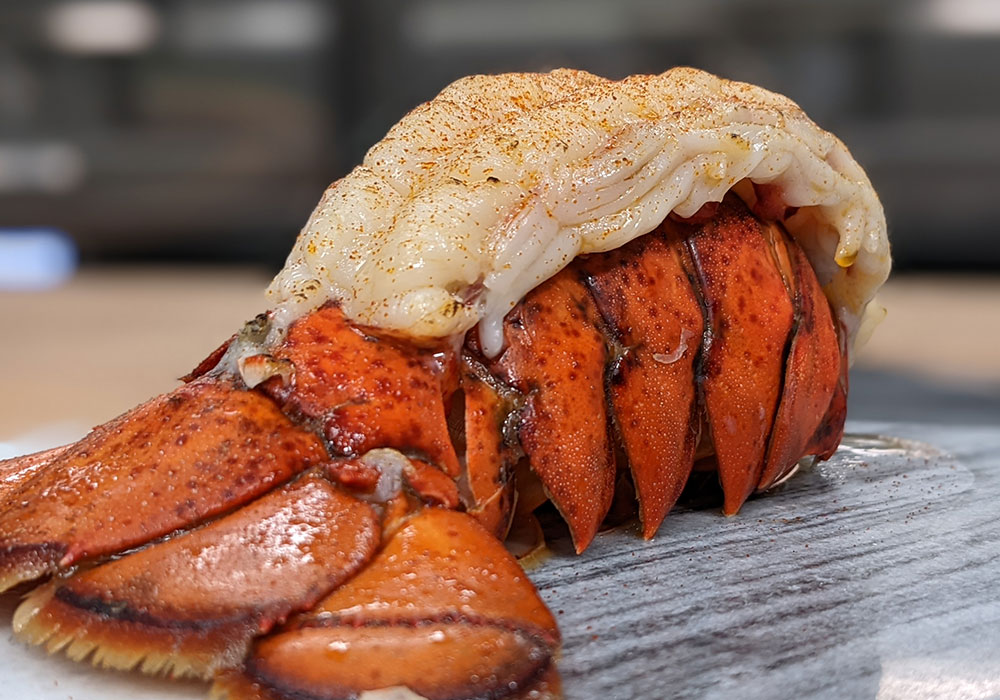CVap: Commercial Food Steamer
CVap ovens can steam? You bet your asparagus they can!

Key Benefits of a Commercial Food Steamer
Using CVap to steam is not just a convenient way to prepare food; it also offers many health benefits.
Preserves Nutrients
A significant advantage of steaming food is that it helps preserve the nutritional value of the food. When you steam cook food the vitamins and minerals remain intact. In contrast, boiling can cause nutrients to leach into the water.
Reduces Fat Content
Steam cooking doesn't require the addition of fats or oils. It's a naturally low-fat cooking method, making it ideal for those customers looking to cut down on their calorie intake.
Retains Natural Flavors
Steam cooking allows the natural flavors of ingredients to shine through. Unlike frying or sautéing, which can mask the taste with added fats and seasonings, steaming enhances the food's inherent flavors.
Food Safety
Since steam cooking involves higher temperatures, it's effective at killing harmful bacteria and parasites that might be present in raw foods. This makes it a safer option for cooking poultry, seafood, and eggs.
Preserves Texture
Steaming helps retain the texture of food, especially vegetables, making them tender yet crisp. Overcooking is less likely to occur with steam cooking, so your dishes will be perfectly cooked.
Reduces the Risk of Carcinogens
Cooking at high temperatures, such as grilling or frying, can lead to the formation of harmful compounds, like acrylamide. Steam cooking, being a gentler method, significantly reduces the risk of these carcinogenic compounds forming in food.
Convenience and Versatility
Beyond its health benefits, steam cooking is incredibly convenient. It's a time-saving method that requires minimal supervision. Steam cooking is versatile as well. It can be used for a wide range of foods, including vegetables, seafood, poultry, grains, and even desserts like puddings and custards.

Steaming Rice in CVap
CVap is the perfect commercial food steamer for rice. CVap’s dual heat technology prevents overcooking, ensuring optimal results. Winston supplies CVap equipment to several major chain customers for preparing and holding rice. CVap can maintain the rice at a temperature above 140°F for up to 24 hours. You can’t do that in a traditional steamer! Learn more about how to safely hold rice for extended periods in this blog.
Steaming seafood like shrimp and lobster in CVap is so easy it should be illegal. By using CVap as a food steamer, you get precise control over temperature and humidity to produce perfectly cooked results. And don’t forget about capacity. A full-size CVap oven can hold up to 14 sheet pans. That’s a lot of lobster! The even and consistent heat allows the product to cook uniformly, preserving its delicate texture and flavor. These tails don’t get tough and rubbery!


